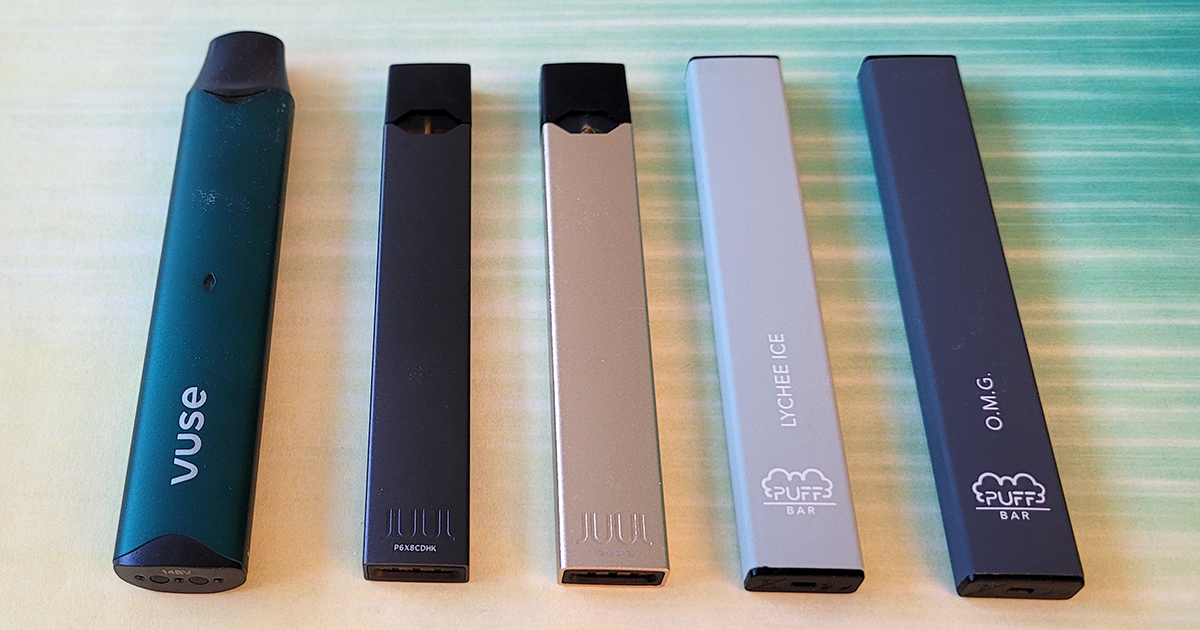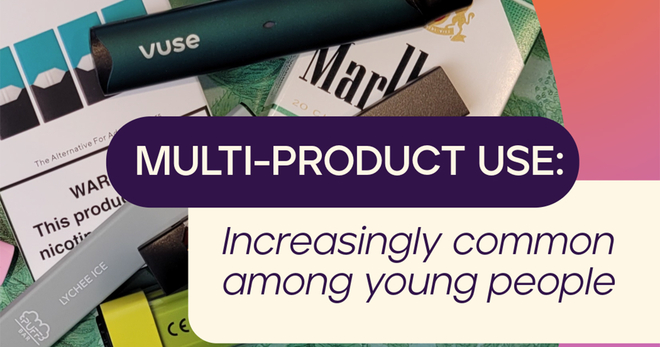New study: Training educators on school e-cigarette policies critical for youth vaping prevention
Teachers and administrators who worked in schools with e-cigarette policies and reported receiving training on those policies had higher odds of recognizing e-cigarettes and intervening on student e-cigarette use compared to those without policies and trainings, according to newly published Truth Initiative® research.
The study, which was published in PLOS One, surveyed 1,500+ U.S. middle and high school teachers and administrators and found that those at schools with policies in place had 3.9X higher odds of recognizing e-cigarettes, 3X higher odds of talking to students about avoiding e-cigarettes, and 1.5X higher odds of reporting that students had been caught using e-cigarettes at school, compared to survey respondents without such policies. With more students back to in-person school and e-cigarette use among young people persisting at epidemic levels, findings highlight the importance of instituting school e-cigarette policies and trainings to help curb the crisis.

Policies and trainings lead to greater e-cigarette recognition and intervention
School policies and training are especially critical as rapidly evolving e-cigarette products continue to drive the youth vaping epidemic in the absence of comprehensive e-cigarette regulation. Less than half (47.5%) of surveyed personnel were able to identify an image of JUUL as an e-cigarette at the height of its popularity, but those with policies in place had 1.9X higher odds of recognizing a photo of JUUL that those without policies. The survey was conducted between November 2018 and December 2018, when JUUL held two-thirds of the e-cigarette market.
E-cigarette brands most popular with young people are constantly evolving in response to federal guidance on e-cigarettes and flavors that exempt some but not all e-cigarettes, underscoring the pressing need for personnel trainings to help teachers and administrators keep up with e-cigarette trends. For example, Puff Bar – a flavored e-cigarette that looks like JUUL but is exempt from federal guidance restricting the sale of other flavored e-cigarettes because it is disposable -- soared to popularity in 2021, with 27% of middle and high school students who use e-cigarettes reporting that it was their usual e-cigarette brand. Teachers at schools with e-cigarette policies in place and equipped with training on these policies are much better positioned to identify and intervene on youth use of ever-changing e-cigarette technology.
“As the tobacco product landscape continues to evolve, it is crucial that school policies are responsive to student uptake of new products and that school personnel are equipped with the awareness and skills to help prevent and intervene on youth tobacco use,” the authors write.
The survey found that policies on e-cigarettes in schools were common, with 84% of respondents reporting that their school had an e-cigarette policy in place. It also found that only 30% of those with policies in place reported receiving training on their school’s e-cigarette policy, presenting a critical gap in preventing youth from using e-cigarettes. The authors write “…training is an important component of implementation to raise awareness of student e-cigarette use among school personnel.”
Resources to address vaping in schools
This is an important time to address youth vaping. A majority of young people anticipated seeing people vape at similar or higher rates as before the pandemic when they returned to in-person school, according to a recent Truth Initiative survey, and a separate Truth Initiative study of teachers indicates they are “extremely concerned” about students’ tobacco use, particularly vaping, saying it results in frequent class interruptions and decreased student focus. Findings from the current study show that resources for educators on tobacco use are essential:
- Youth vaping prevention curriculum: To educate America’s students about the health dangers of e-cigarette use and reverse the pervasive youth vaping epidemic, Truth Initiative and Kaiser Permanente in collaboration with the American Heart Association, launched a national youth vaping prevention curriculum called Vaping: Know the truth. This free digital learning experience, developed as part of Truth Initiative’s nationally recognized truth campaign, encourages students to live vape-free lives. The self-led interactive-curriculum offers resources to help young people who are currently using e-cigarettes to quit through truth’s first-of-its-kind text message youth quit vaping program called This is Quitting already helping more than 400,000 youth and young adults on their journeys to quit.
- Responding to tobacco use in schools: Truth Initiative also encourages schools to take a supportive approach rather than disciplining students who violate the school tobacco-related policies. To that end, Truth Initiative does not support suspension or expulsions from school as a punishment for tobacco use, including vaping, on school grounds. Suspensions can cause even more problems at school, and there are serious differences in how suspension and expulsions are used, with minority students much more likely to be suspended or expelled. Truth Initiative recommends that students who violate tobacco policies be approached in a supportive way that focuses on encouraging them to quit using tobacco products, including by directing them to services that can help them succeed like This is Quitting.
- The full resource “Discipline Is Not the Answer: Better Approaches to On-campus Student Tobacco Use” provides suggestions on how to best address student tobacco use in school.
More in emerging tobacco products
Want support quitting? Join EX Program
By clicking JOIN, you agree to the Terms, Text Message Terms and Privacy Policy.
Msg&Data rates may apply; msgs are automated.


